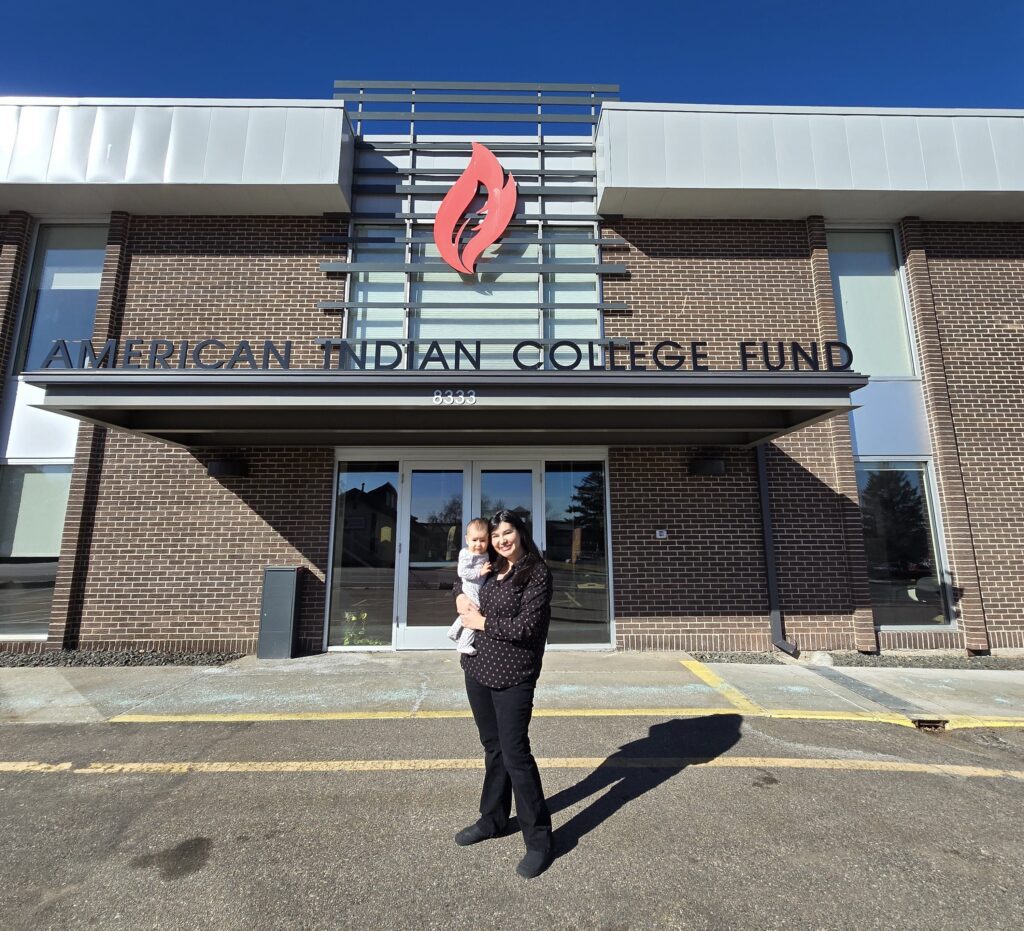By Heather Burshia (enrolled member of the Fort Peck Assiniboine and Sioux Tribes), FPCC, Program Director

Heather Burshia and her baby standing at the front of the American Indian College Fund building for the 2023-2024 Indigenous Visionaries: Women’s Leadership Program convening in Denver, Colo.
2023-2024 Indigenous Visionaries Fellow
The Indigenous Visionaries: Women’s Leadership Program chose me as one of their ten fellows for the 2023-2024 cohort. I work as a Project Director at Fort Peck Community College. My professional role is the first one like it I have had in my life. I am tasked with being a leader, helping my staff to fulfill their roles, and for us all to meet grant objectives and goals. Knowing that I must lead, I strive to do all that I can to be better. This leadership program was the perfect opportunity for me to develop professionally and personally.
From the start of this program, I began learning from the other Native women who would share their experiences and their ideas. One of the first things I learned about being a leader was the need to be able to articulate my vision. This knowledge was helpful because at this time in my career my team and I were planning a large event which is the first of this scale that any of us have been a part of. It was important that my team and our volunteers knew the vision for the event. Once that vision was articulated and shared with the supporters, the event was a success!
Through this program I also learned about imposter syndrome, the feeling of self-doubt or feeling like a fraud in your area of expertise. I could relate to these feelings of self-doubt, but being chosen for this program was a confidence booster. The College Fund decided that my voice was important enough to influence others and that my experiences and example matters.
As I first drafted this blog, I wrote it in a way that those who knew me best could not hear my voice in it. They have heard me tell them wonderful and amazing things I have been learning, but were shocked I have not shared them in writing. I responded that I did not want to share that with strangers, that it was too special to me, but I quickly realized I was wrong.
A leader needs to share their knowledge with everyone around them. A leader needs to be who they are instead of who they may think others want them to be. Indigenous women leaders know who they are. They care for their families and communities with love, strength, and wisdom.







